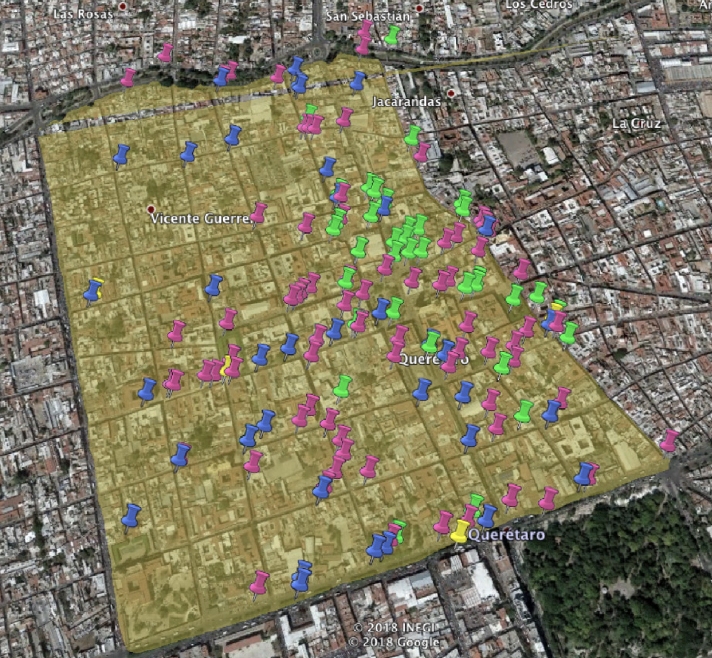In most dense urban environments in emerging markets, retail deliveries are fragmented to thousands of nano stores. It is not uncommon for a delivery route to include more than 60 stops. As a result, unloading bays are often blocked by regular traffic. Due to the complex urban environment, estimating the benefits of making unloading bays available isn’t easy.
In a study by Fransoo et al., researchers conduct a field experiment in an urban field lab of one square kilometer in downtown Querétaro, Mexico. During the treatment period of one week, we obtain help from the local traffic police to keep the unloading bays available for unloading only. Using advanced GPS devices and extensive manual field observations, the researchers can capture driver behavior changes, and the direct efficiency increases.
The researchers find a high-efficiency gain in travel time (39%) and – remarkably – in the total time parked (17%). Corrected for other effects, they estimate a gain of about 44% in total time per delivery. Apart from the insights on unloading benefits, they also provide insights into the method of field experimentation in such a complex environment.
Source: Jan C. Fransoo, M. Gastón Cedillo-Campos, Karla M. Gámez-Pérez,
Estimating the benefits of dedicated unloading bays by field experimentation,
Transportation Research Part A: Policy and Practice, Volume 160, 2022

